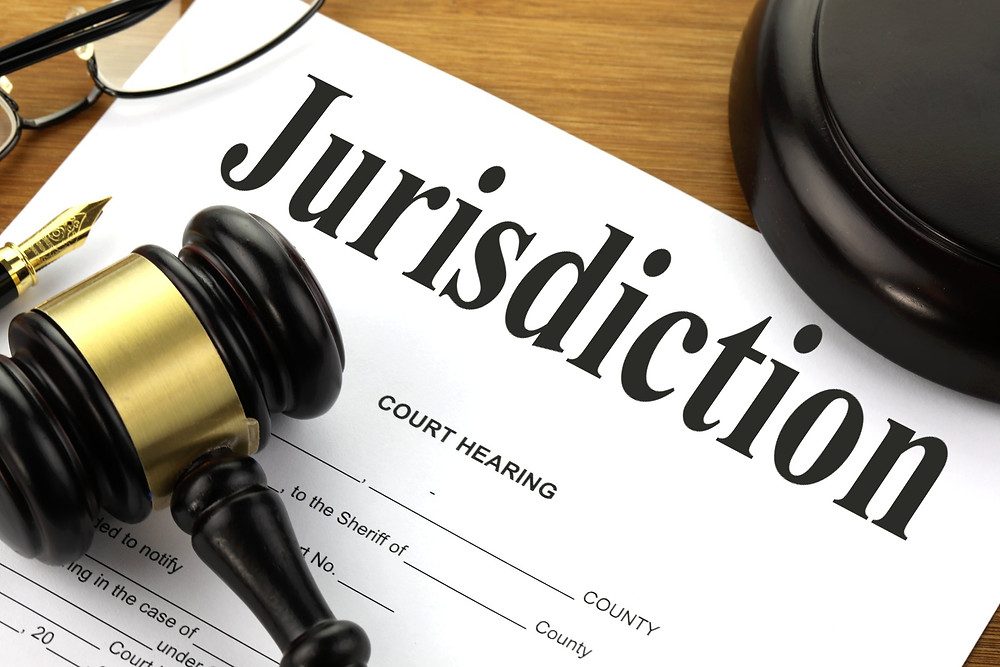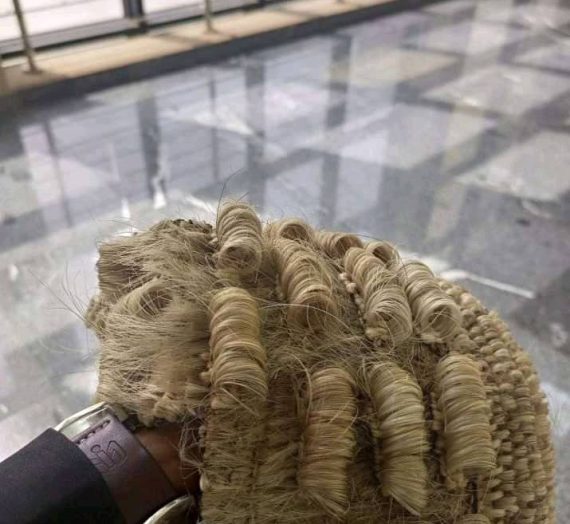What is Jurisdiction?
UKUT & ORS v. APC & ORS (2019) LPELR-47203(CA)
“By way of prefatory remarks, jurisdiction, a mantra in adjudication, connotes the authority/power of a Court to determine a dispute submitted to it by contending parties in any proceeding, see Ajomole v. Yaduat (No. 1) (1991) 5 SCNJ 172; Mobil Pro. Co. Unltd. v. LASEPA (2002) 18 NWLR (Pt.798) 1; Ndaeyo v. Ogunnaya (1977) 1 IMSLR 300; Ebhodaghe v. Okoye (2004) 18 NWLR (Pt. 905) 472; Garba v. Mohammed (2016) 16 NWLR (Pt. 1537) 144; A.-G., Kwara State v. Adeyemo (2017)1 NWLR (Pt. 1546) 210; Isah v. INEC (2016) 18 NWLR (Pt. 1544) 175; Angadi v. PDP (2018) 15 NWLR (Pt. 1641) 1.” Per OBANDE FESTUS OGBUINYA, JCA (Pp 10 – 11 Paras D – A)
ZURU v. FAKAI (2021) LPELR-55015(CA)
“A question that must be answered is: what is jurisdiction in law and what are its ingredients? In the case of SHITTA-BEY VS. ATTORNEY-GENERAL, FEDERATION (1998) 10 NWLR (PT. 570) PAGE 392, jurisdiction was defined as follows: “it is the authority a Court of law has to entertain and decide a matter brought before it by litigants. It embraces every kind of judicial action be it criminal, civil and what nots. It is the power of Court to decide a matter in controversy and it presupposes the existence of a duly constituted Court with control over the subject matter and the parties.” ?While the ingredients of jurisdiction exist where: (a) The subject matter of the case is within the jurisdiction of the Court and there is no feature in the case which prevents the Court from exercising its jurisdiction. (b) The Court is properly constituted as regards members and their requisite qualification and no member is disqualified for one reason or the other; and (c) The case is initiated by due process of law and upon fulfillment of any condition precedent to the exercise of jurisdiction. See the cases of MADUKOLU VS. NKEMDILIM (1962) 2 SCNLR 341; SKENCONSULT (NIG) LTD VS. UKEY (1981) 1 SC 6; ISHOLA VS. AJIBOYE (1994) 6 NWLR (PT. 352) PAGE 506; WESTERN STEEL WORKS LTD VS. IRON AND STEEL WORKERS UNION (1986) 3 NWLR (PT. 30) PAGE 617 and ODOFIN VS. AGU (1992) 3 NWLR (PT. 229) PAGE 350.” Per MOHAMMED BABA IDRIS, JCA (Pp 8 – 9 Paras B – C)
EGBELE v. POSTMASTER GENERAL (2010) LPELR-4362(CA)
“What determines jurisdiction is simply the enabling law on jurisdiction and the reliefs sought for in the suit. If the relief is within the Court’s jurisdiction and the enabling law confers on the Court jurisdiction on the matter the Court must assume jurisdiction, otherwise it lacks jurisdiction in the matter.” Per HUSSEIN MUKHTAR, JCA (Pp 13 – 13 Paras E – F)
Why is Jurisdiction Important and the effect of the Lack of Jurisdiction on proceedings before the Court?
NUNGWA v. BOKO & ORS (2019) LPELR-48194(CA)
“…the issue of jurisdiction is fundamental as it touches on the competence of the Court to entertain any process, be it an application or an appeal, filed before the Court, Jurisdiction is a threshold issue and the livewire for any determination. It is the power of the Court to hear and determine the subject matter in controversy between the parties. see Ogumka V CAC (2010) LPELR-4891(CA). The jurisdiction of a Court means the limits which are imposed upon the power of a Court to hear and determine issues between persons seeking to avail themselves of its process by reference to the following factors: (1) The subject matter of the issue; or (2) The persons between whom the issue is joined; or (3) The nature of relief sought; or (4) A combination of these factors. Thus, jurisdiction embraces the settled practice of the Court as to the way in which it will exercise its power to hear and determine issues which fall within its purview; or as to the circumstances in which it will grant a particular kind of relief which it has power to grant; including its settled practice to refuse to exercise such powers or to grant such relief in particular circumstances. See Orubu V NEC (1988) NEC (12 SC (Pt. III) 1; Aladetan V Wole (2010) LPELR-3699(CA) 14.” Per JUMMAI HANNATU SANKEY, JCA (Pp 27 – 28 Paras B – B)
REGISTERED TRUSTEES OF IMPORTERS ASSOCIATION OF NIGERIA & ORS v. OKEREKE (2019) LPELR-46967(CA)
“The importance of jurisdiction in every case before the Court cannot be over-emphasized. The importance of jurisdiction is the reason why it can be raised in Court at any stage of the case. See Petrojessica Ent. Ltd & Anor v. Leventis Technical Co. Ltd (1992): 5 NWLR (Pt. 244) 675; Adegoke v. Adibi (1992) 5 NWLR (Pt. 242) 410; Utih & Ors v. Onoyivwe & Ors (1991) 1 NWLR (Pt. 166) 166. The issue of jurisdiction is so important that where in fact the Court has no jurisdiction with respect to a matter before it, the active support or ignorance or silence of the parties to that fact cannot vest the Court with the requisite jurisdiction which is the essential pre-condition to the exercise of judicial powers. See Ijebu-Ode LG. v. Adedeji (1991) 1 NWLR (Pt. 166) 136.” Per STEPHEN JONAH ADAH, JCA (Pp 9 – 9 Paras B – E).
MOHAMMED & ORS v. ABDULLAHI (2022) LPELR-58052(CA)
“a Court has no powers to adjudicate over a matter if it lacks jurisdiction and if the Court decides to go ahead, all the proceedings and decision of the Court will amount to a nullity. See Hameed Toriola & Anor vs Mrs. Olushola Williams (1982) 7 S.C. 27. In Buremoh vs Akande (2017) LPELR-41565 (SC), the apex Court held: “…The settled position of the law is that the issue of Jurisdiction, being so fundamental to the Court’s power to adjudicate, can be raised at any stage of the proceedings, even before this Court. It can be raised orally. It can also be raised suo motu by the Court. This is because, no matter how well the proceedings are conducted or how erudite the judgment arising therefrom, it all amounts to a nullity where the Court lacks jurisdiction. See Madukolu Vs Nkemdilim (1962) 1 ALL NLR 587; Nnakwe Vs The State (2013) 7 SCNJ 179; Oloriegbe Vs Omotosho (1993) 1 SCNJ 30.” This Court and the apex Court in a number of cases stated the importance of jurisdiction in a case. On the importance of jurisdiction, this Court has had course to make a pronouncement in the case Aladesanmi & Ors vs Holden properties (Nig) Ltd (2018) LPELR-49357 in these words: “The subject of jurisdiction is a serious one and indeed it is the life wire of any proceeding. A Court that adjudicates on a matter it has no jurisdiction would have wasted its time, that of the litigants, the Court staff and indeed material, human and financial resources. This is because it is trite that any decision reached by a Court over a matter it has no jurisdiction will amount to nullity. It is as wasteful as a journey without destination or a journey into an endless or bottomless pit. See CHIEF OF AIR STAFF & ORS VS. IYEN (2005) 1 SC (PT II) 123, UYAEMENAH NWORA & ORS VS NWEKE NWABUEZE NSCQR 46 2011 PAGE 409. This is a journey of a beginning without an ending. No Court and indeed no human being should want to venture into such a journey which is not only tasking but fruitless. The question is, did the lower Court engage in such a journey? In answering that question, it will not be out of place to know what jurisdiction means and what confers jurisdiction on a Court. Jurisdiction is the power of a Court to adjudicate on a matter. This is what gives the Court power to welcome a litigant. This is the strength that a Court has to deal with matters brought before it. This is conferred mainly by statute. The matters that a Court can handle are what the jurisdiction of the Court is all about. Clearly, in Nigeria it is not every Court that has jurisdiction to handle all cases, the statute can confer jurisdiction to handle all cases. The statute can confer jurisdiction on a Court. See A.G. LAGOS VS. DOSUNMU (1989) 6 SC (PT 2) 1.” Jurisdiction is as important to a Court, just as water is important to fish and breath is to human beings. Jurisdiction is like water to fish and breath to a human being. Without water, fish cannot survive just as human beings cannot survive without breath. The power of a Court without jurisdiction is like a toothless bulldog or a king without a kingdom. It is jurisdiction that activates the judicial powers of a Court.” Per EBIOWEI TOBI, JCA (Pp 27 – 29 Paras A – F).
ADETAYO & ORS v. ADEMOLA & ORS (2010) LPELR-155(SC)
“Therefore, when a Court lacks jurisdiction, it lacks the necessary competence to try the case. This is because, a defect in competence, is fatal as the proceedings, are null and void ab initio. See the case of Ogigie & 3 ors. v. Obivan (1997) 10 SCNJ 1 citing the cases of Alhaji Tukur v. Government of Gongola State (1989) 4 NWLR (Pt.1l7) 513 ; (1989) 9 SCNJ. 1: Salati v. Shehu (1986) 1 NWLR (Pt.15) 198; Alade v. Alemuloke & 2 ors.(1988) 1 NWLR (Pt.69) 201 @ 204 ; (1988) 2 SCNJ 1 ; Chief Oloba v. Akereja (1988) NWLR (Pt.84) 508 @ 510; (1988) 7 SCNJ 56.” Per IKECHI FRANCIS OGBUAGU, JSC (Pp 28 – 28 Paras A – C)
APC & ORS v. ENUGU STATE INDEPENDENT ELECTORAL COMMISSION & ORS (2021) LPELR-55337(SC)
“Where the Court lacks jurisdiction to entertain a cause or matter, any step taken in the proceedings amounts to an exercise in futility. It is null and void. See Madukolu Vs Nkemdilim (1962) 1 ALL NLR 387 @ 594, Utih vs Onoyivwe (supra): IDISI vs Ecodril Nig. Ltd. & Ors (2016) ALL FWLR (Pt. 850) 1016: Gwede vs INEC & Ors. (2014) 18 NWLR (Pt. 1438) 56.” Per KUDIRAT MOTONMORI OLATOKUNBO KEKERE-EKUN, JSC (Pp 34 – 34 Paras B – D)
Conditions that Must be met before a Court has jurisdiction.
ADETOYINBO & ORS v. PRESIDENT & OTHER MEMBERS OF WAKAJAYE GRADE C CUSTOMARY COURT, WAKAJAYE, IBADAN & ORS (2015) LPELR-41714(CA)
“The issue of jurisdiction is very important in adjudication and the term has been variously described by jurists as the life blood of any adjudication. See Katto v. CBN (1991) 11-12 SC 176. The general principle of law is that before a Court can be said to be competent or claim to have jurisdiction in respect of any matter – (a) It must be properly constituted with respect to the number and qualification of its members (b) The subject matter of the action must be within its jurisdiction. (c) The action is initiated by due process of law and (d) Any condition preceded to the exercise of its jurisdiction must have been fulfilled. (The underline is mine) See the cases of Madukolu v. Nkemdilim (1962) 1 ALL NLR 587, Dangana & Anor. v. Usman & 4 Ors (2012) 25 C (pt. 111) 103 and N.U.R.T.W. & Anor. v. R.T.E.A.N. & 5 Ors (2012) 1 SC (pt.11) 119.” Per MUDASHIRU NASIRU ONIYANGI, JCA (Pp 20 – 21 Paras D – B)
NNAKWE v. STATE (2013) LPELR-20941(SC)
“The competence of a Court to adjudicate on any matter had long been laid to rest in the locus classicus case of Madukolu V. Nkemdilim supra wherein Bairamian, F.J made the following observations at page 348 and said:- “Before discussing those portions of the record, I shall make some observations on jurisdiction and the competence of a Court. Put briefly, a Court is competent when- (1) it is properly constituted as regards numbers and qualifications of the members of the bench, and no member is disqualified for one reason or another; and (2) the subject matter of the case is within its jurisdiction, and there is no feature in the case which prevents the Court from exercising its jurisdiction; and (3) the case comes before the Court initiated by due process of law, and upon fulfillment of any condition precedent to the exercise of jurisdiction. Any defect in competence is fatal for the proceedings are a nullity however well conducted and decided: the defect is extrinsic to the adjudication.” For purpose of conferring jurisdiction therefore, the Court must be absolutely certain and satisfied that the offence or crime is directly donated by the jurisdiction conferred in the enabling law; where the offence or crime is however outside the statutory provision, the Court cannot exercise jurisdiction as it lacks the authority to do so. See Onwudiwe V. F.R.N. (2006) 10 NWLR (Pt. 988) 382 at 425.” Per CLARA BATA OGUNBIYI, JSC (Pp 55 – 56 Paras B – C).
Whether Parties can by Consent Waive Jurisdiction?
OYENIRAN & ORS v. EGBETOLA & ANOR (1997) LPELR-2876(SC)
“Indeed, it is trite that parties cannot by consent or waiver confer jurisdiction on the Court where there is no jurisdiction in a Court to try the case.” Per SYLVESTER UMARU ONU, JSC (Pp 33 – 34 Paras G – A)
Jurisdiction of the Court of Appeal
The Jurisdiction of the Court of Appeal to Hear an Appeal is linked to/Depends on the Jurisdiction of the Trial Court to entertain the suit leading to the Appeal
Legal Issue: Whether an appellate court can exercise jurisdiction over a matter where the lower Court(s) lacks jurisdiction?
Suggested search query on law pavilion primsol: Whether an appellate court can exercise jurisdiction over a matter where the lower Court(s) lacks jurisdiction.
Principle: Where it is shown that the lower Court lacks the jurisdiction to adjudicate on a cause or matter an Appellate Court will also lack jurisdiction to determine the merit of an appeal emanating therefrom.
NNPC & ANOR v. EFEBO (2019) LPELR-47904(CA), SARANYI v. JIBRILLA (2019) LPELR-48781(CA), WARD & ORS v. SUFFOLK PETROLEUM SERVICES LTD & ANOR (2017) LPELR-45204(CA), ODEY v. ALAGA & ORS (2021) LPELR-53408(SC), APGA V. ANYANWU (2014) 7 NWLR (PT 1407) 541 at 567-568, ANYANWU v. OGUNEWE & ORS (2014) LPELR-22184(SC), MUSICIAL COPYRIGHT SOCIETY OF (NIG) LTD v. NCC (2016) LPELR-41009(CA),
UMEZ ENGINEERING CONSTRUCTION CO. LTD & ANOR v. ALOZIE (2018) LPELR-44656(CA), CHUKWURAH v. APC & ORS (2023) LPELR-59735(CA)
SARANYI v. JIBRILLA (2019) LPELR-48781(CA)
“An appellate Court cannot exercise jurisdiction in a matter once the lower Court or the Court below is without jurisdiction. See Ehuwa vs. Ondo State (2006) 12 SCNJ 259 at 269.” Per JAMES SHEHU ABIRIYI, JCA (Pp 11 – 11 Paras D – E)
WARD & ORS v. SUFFOLK PETROLEUM SERVICES LTD & ANOR (2017) LPELR-45204(CA)
“…Since the lower Court was not clothed with the jurisdiction to try the matter ab initio, this Court is stripped of the vires to hear the appeal. SeeIkechukwu v. Nwoye (2015) 3 NWLR (Pt. 1446) 367; Yar’adua v. Yandoma (2015) 4 NWLR (Pt. 1448) 123; Lafferi v. NAL Merchant Bank (2015) 14 NWLR (Pt. 1478) 64; Egbuchu v. CMB Plc. (2016)) 8 NWLR (Pt. 1513) 192. The reason is not far-fetched. In the view of the law, the jurisdiction of a higher/appellate Court in a matter is tied to that of a lower Court where an appeal emanates. In effect, the want of jurisdiction of the lower Court over the suit contaminates the jurisdiction of this Court to hear the appeal. In other words, the appeal, as constituted, is infested with incompetence.” Per OBANDE FESTUS OGBUINYA, JCA (Pp 22 – 23 Paras C – A)
SPDC v. GOVT OF BAYELSA STATE & ANOR (2017) LPELR-45224(CA)
“For the sake of clarity and completeness, I must place on record, pronto, that since the lower Court was not clothed with the jurisdiction to try the matter ab initio, this Court is stripped of the vires to hear the appeal, see Ikechukwu v. Nwoye (2015) 3 NWLR (Pt. 1440) 367; Yar’adua v. Yandoma (2015) 4 NWLR (Pt. 1448) 123; Lafferi v. NAL Merchant Bank (2015) 14 NWLR (Pt. 1478) 64; Egbuchu v. CMB Plc. (2016) 8 NWLR (Pt. 1513) 192. The reason is obvious. In the view of the law, the jurisdiction of a higher/appellate Court in a matter is tied to that of a lower Court where an appeal emanates. In effect, the want of jurisdiction of the lower Court over the suit contaminates the jurisdiction of this Court to hear the appeal. In other words, the appeal, as constituted, is plagued with incompetence. The gross and dismal effect is that the entire proceedings and the decision of the lower Court, delivered on 12th April, 2016, were/are trapped in the web of nullity. In the result, the decision of the lower Court is worthless in the hands of the respondents. Since it was mired in a nullity, it was/is barren to give birth to a viable appeal. In sum both the suit and the appeal are rendered incompetent.” Per OBANDE FESTUS OGBUINYA, JCA (Pp 29 – 30 Paras D – D)
NNAJI & ORS v. C.O.P KADUNA STATE & ORS (2021) LPELR-55797(CA)
“Suffice, it to say that this Court having found that the lower Court lacked the jurisdiction to have entertained the Appellants’ incompetent action, equally lacks the jurisdiction to consider the merits of the decision of the lower Court in the case. In this regard, see the case of EHUWA V. ONDO STATE INDEPENDENT ELECTORAL COMMISSION [2007] All FWLR (Pt. 351) 1415 wherein it was held to the effect that once an appellate Court determines that there was no jurisdiction in the lower Court to exercise in respect of a matter, the decision of the lower Court must be set aside leaving the appellate Court with no jurisdiction to consider talk less of making any pronouncement in relation to the null and void proceeding and order or judgment of the lower Court.” Per FATIMA OMORO AKINBAMI, JCA (Pp 10 – 11 Paras C – A)
SULEJA v. ABUBAKAR & ORS (2019) LPELR-47899(CA)
“The trite law is that where the Court of trial lacks the jurisdiction on a cause or matter the Appellate Court is also in that circumstance devoid of jurisdiction to decide the appeal emanating from the null proceedings as in this case. The case is liable to be struck out for being incompetent and for lack of jurisdiction on the part of the trial Court. In other words, this Court cannot exercise appellate jurisdiction on an appeal where the lower Court lacks the jurisdiction to deal with the subject matter of an action. See ECOBANK NIGERIA LTD V ANCHORAGE LEISURES LTD & ORS (2018) 18 NWLR (PART 1650) 117 AT 135 C – G per PETER-ODILI, JSC who said:- “There was no appeal to the Court of Appeal on the stand of the trial Court’s striking out the contempt proceedings for lack of jurisdiction and so the appellant cannot bring the matter up at this stage at the Supreme Court. The implication is that the striking out of the contempt proceedings on a want of jurisdiction by the trial Court and the matter not appealed against, there is no vices on which it can be reopened at that stage since the Court of Appeal would lack jurisdiction and the same virus visiting this Court on that same issue. The two Courts below lacking jurisdiction, this Court automatically has been caged and is helpless as there is no basis on which it can assume jurisdiction to entertain the merits of the contempt proceeding which the two Courts below did have jurisdiction to entertain. This calls up the reminder to what is now trite in law which is that an appeal is a continuation of hearing and not on its own to be activated without a linkage to the earlier trial or appeal from a lower Court. See Ajide v. Kelani (1985) 3 NWLR (Pt.12) 248 at 269; Adegoke Motors Ltd v. Adesanya (1989) 3 NWLR (Pt.109) 250 at 266. The case of Akinbobola v. Plisson Fisko (1991) 1 NWLR (Pt.167) 270 at 285 paras. E-G would highlight what I have been trying to communicate and there this Court had stated in very clear terms the true position of things thus:- “The Court below being an appellate Court, cannot exercise jurisdiction in a matter where the trial Judge is without jurisdiction. It only exercises its appellate jurisdiction to correct the errors of the learned Judge. Hence it will have no jurisdiction to make consequential orders after it has held that the learned Judge had none. Accordingly having held that the learned trial Judge had no jurisdiction to make consequential orders the Court below could not have made because it can only exercise jurisdiction on appeal as if the proceedings had been instituted in the Court of Appeal as Court of first instance.” Per PETER OLABISI IGE , JCA (Pp 47 – 49 Paras B – D)



